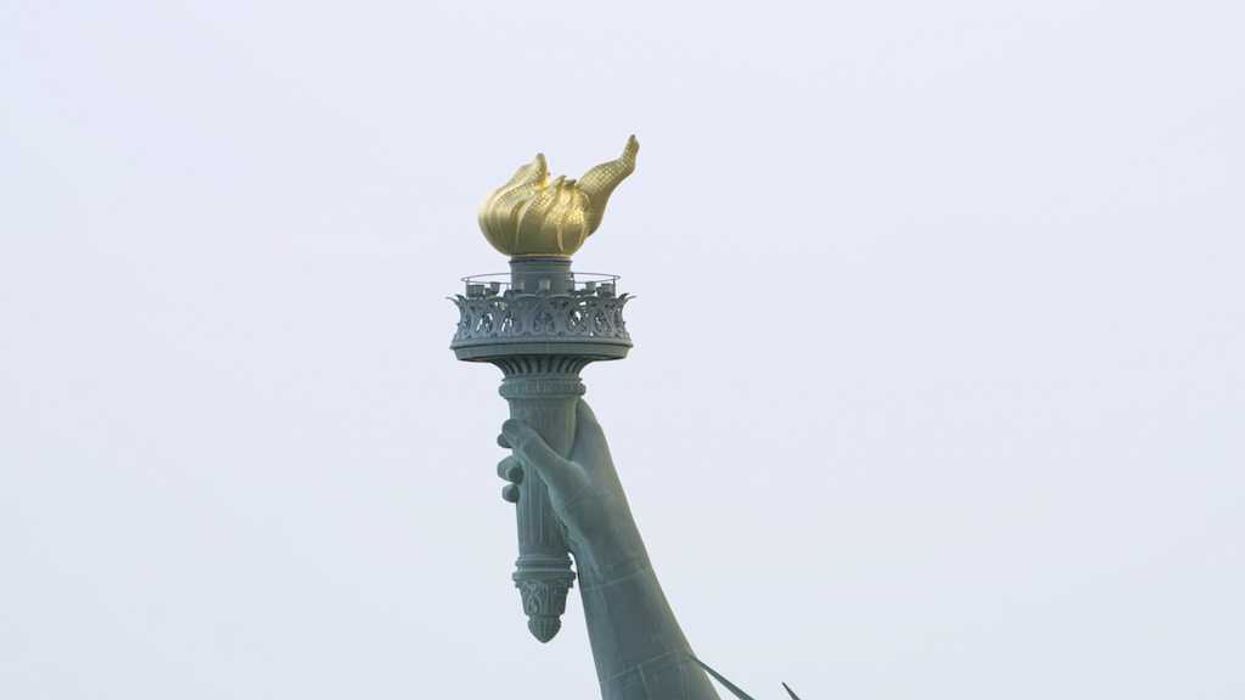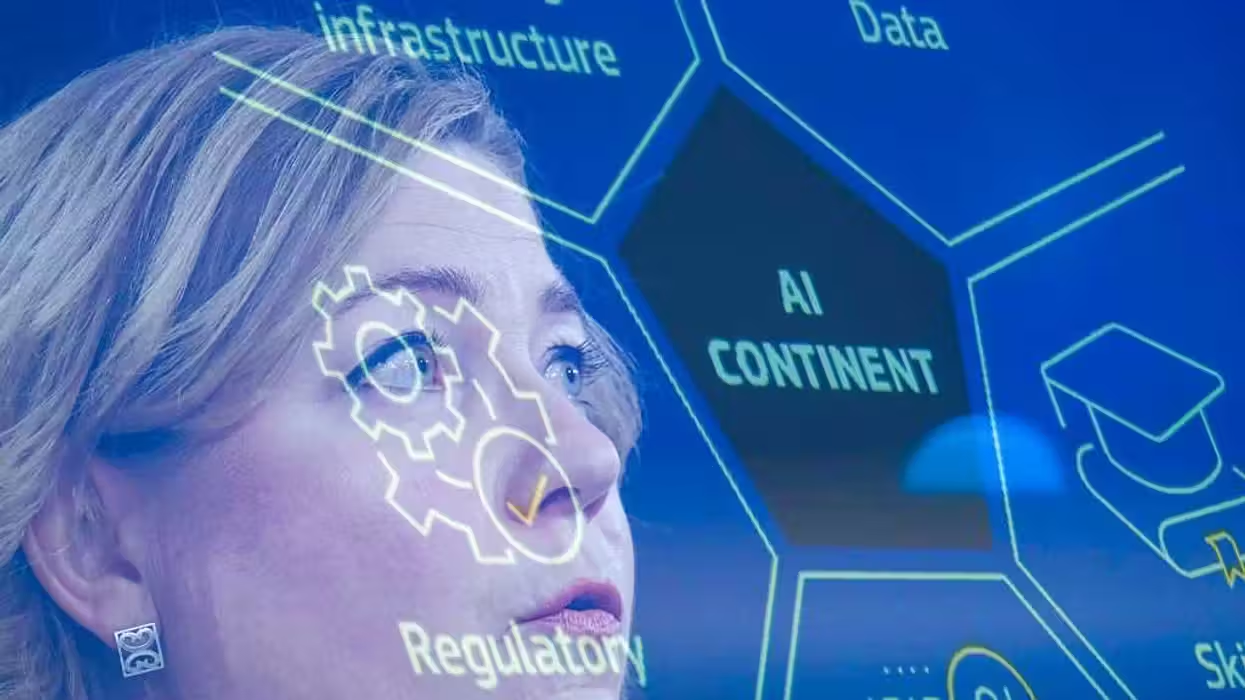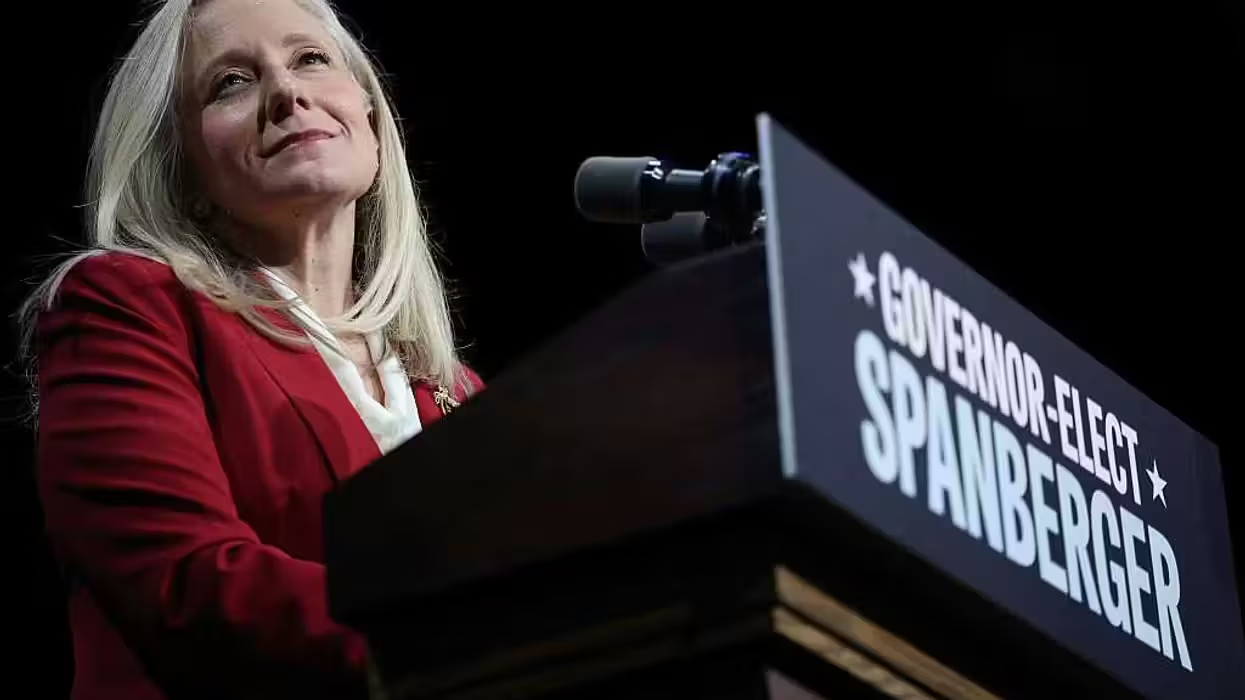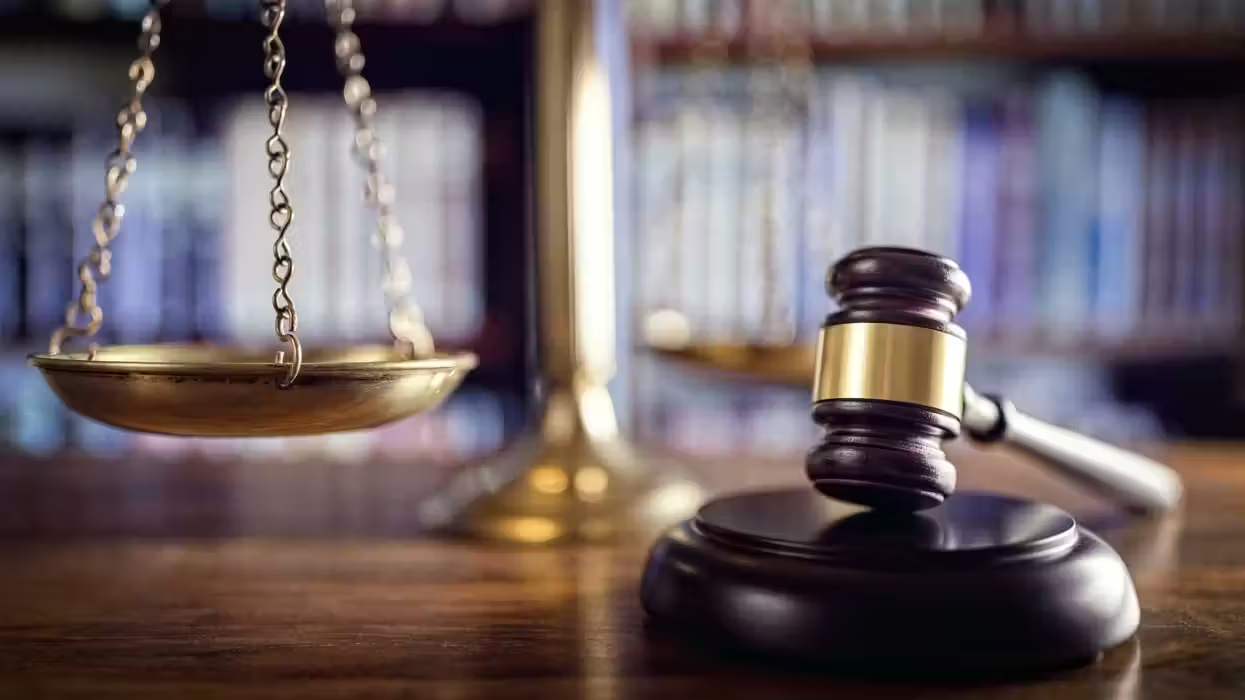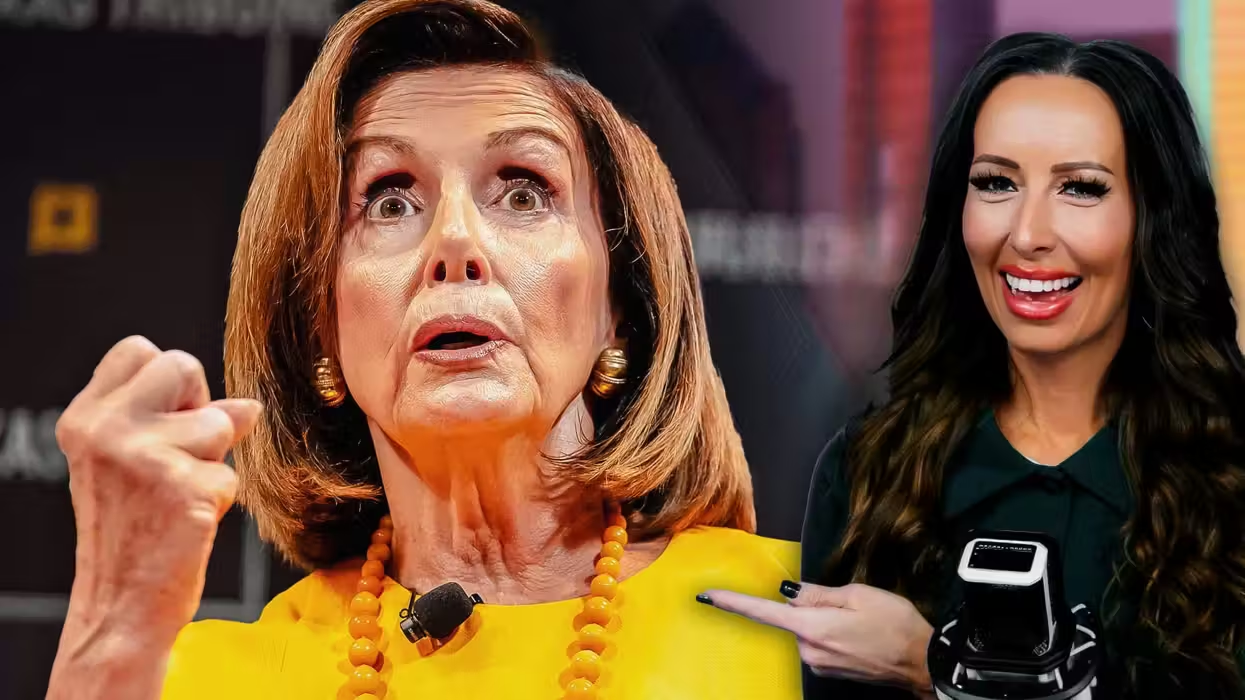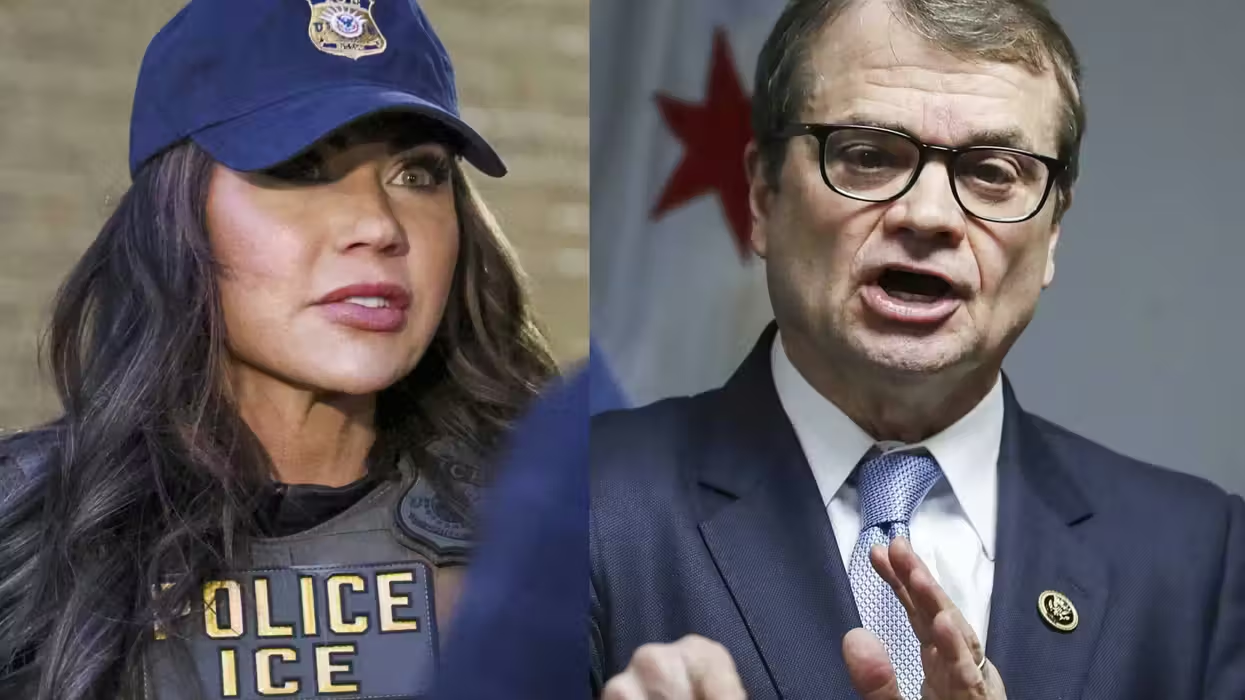WASHINGTON (AP) -- President Barack Obama is due to meet face-to-face Tuesday with Senate Republican leaders who vow to block his Supreme Court nominee -- no matter who it is -- with the hope of keeping the seat open for a Republican president to fill next year.
Senate Majority Leader Mitch McConnell, R-Ky., and Judiciary Committee Chairman Chuck Grassley, R-Iowa, are expected at the White House midmorning for the sit-down with Obama, Vice President Joe Biden, Senate Minority Leader Harry Reid, D-Nev., and Sen. Patrick Leahy, D-Vt., the ranking Democrat on the committee. It will be the first time the leaders have met since Justice Antonin Scalia's death last month set off a clash over the Supreme Court.
 The hearse carrying Scalia's casket arrives at the Supreme Court Friday morning. (AP/Alex Brandon)
The hearse carrying Scalia's casket arrives at the Supreme Court Friday morning. (AP/Alex Brandon)
At another time, the gathering might have been a nod to the tradition of at least limited cooperation in naming and confirming justices to the nation's highest court. The president might have floated potential candidates; Senate opposition might have come armed with their own preferred names.
But in the current stand-off, gestures of collaboration seem moot. Neither side has indicated it will come with much more than talking points.
"Look, the president is open to a discussion, but it would represent a pretty dramatic reversal in position for Mr. McConnell, who has said that the president shouldn't put anybody forward, to come with a list of potential nominees," White House spokesman Josh Earnest said Monday. "It makes it hard for him to engage constructively, until they change that position."
In a joint statement last week, McConnell and Grassley said they looked forward to "reiterating" their belief that the electorate should weigh in on a decision that could shift the ideological balance of the court for a generation.
They also suggested that the White House might want to fill out the meeting agenda with other items.
"We welcome the opportunity to further discuss matters of mutual interest, like the drug epidemic that's tearing communities apart across our country," they said.
Before McConnell heads to the White House, he is scheduled to address House Republicans at their weekly meeting. The House Republicans have backed the Senate strategy.
 Senate Majority Leader Mitch McConnell of Ky. walks to a closed-door GOP policy lunch on Capitol Hill in Washington, Tuesday, Feb. 23, 2016. Senate Republicans, most vocally Senator McConnell, are facing a high-stakes political showdown with President Barack Obama sparked by the recent death of Supreme Court Justice Antonin Scalia. Republicans controlling the Senate — which must confirm any Obama appointee before the individual is seated on the court — say that the decision is too important to be determined by a lame-duck president. (AP Photo/J. Scott Applewhite)
Senate Majority Leader Mitch McConnell of Ky. walks to a closed-door GOP policy lunch on Capitol Hill in Washington, Tuesday, Feb. 23, 2016. Senate Republicans, most vocally Senator McConnell, are facing a high-stakes political showdown with President Barack Obama sparked by the recent death of Supreme Court Justice Antonin Scalia. Republicans controlling the Senate — which must confirm any Obama appointee before the individual is seated on the court — say that the decision is too important to be determined by a lame-duck president. (AP Photo/J. Scott Applewhite)
While the standoff continues, the president spent a significant part of the weekend reading through files on potential nominees and considering his options, Earnest said, adding that the president has not settled on a short list and could still add names to the mix.
Amid the unusually contentious circumstances, the president tapped a close adviser to lead the selection process within the White House. Senior Adviser Brian Deese, who previously led climate change negotiations, will work closely with White House counsel Neil Eggleston throughout the process, the White House said.
For now, the White House is focused on demonstrating that it is making an effort to consult with the Senate - even if there's not much give and take. On Tuesday, Obama plans to discuss with Republican leaders the historical precedent for confirming justices in a presidential election year, Earnest said.
"One of the things the president is interested in discussing is, actually, what happened in 1988," Earnest said, noting Anthony Kennedy's election-year confirmation to the court. Kennedy had been nominated by President Ronald Reagan the preceding year. Both McConnell and Grassley voted in favor of Kennedy's confirmation.
Republicans, meanwhile, have been quick to note the history they find relevant. In separate op-eds published in home-state media outlets on Tuesday, McConnell and Grassley both wrote that Biden, a former Senate Judiciary chairman, once endorsed the idea of suspending consideration of a nominee during an election year, presumably in an effort to keep the court from becoming overly politicized.
"The president certainly has the constitutional authority to nominate a justice in an election year, and he intends to use it," Grassley wrote in the Des Moines Register. "In the Senate, we have the equal constitutional authority to consent or withhold consent. This is not a new or even partisan idea."
–

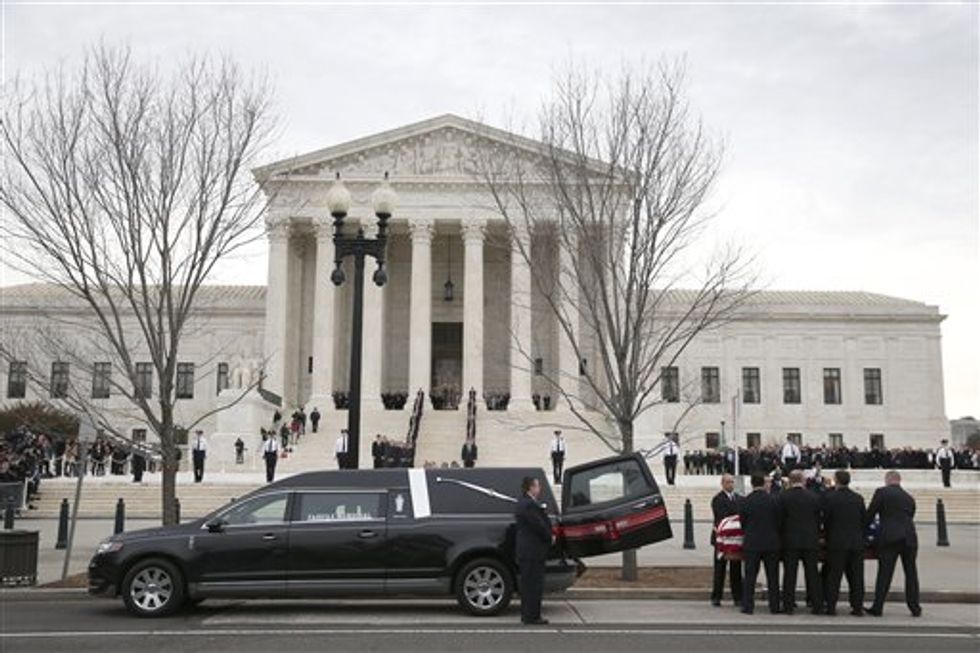 The hearse carrying Scalia's casket arrives at the Supreme Court Friday morning. (AP/Alex Brandon)
The hearse carrying Scalia's casket arrives at the Supreme Court Friday morning. (AP/Alex Brandon)
 Senate Majority Leader Mitch McConnell of Ky. walks to a closed-door GOP policy lunch on Capitol Hill in Washington, Tuesday, Feb. 23, 2016. Senate Republicans, most vocally Senator McConnell, are facing a high-stakes political showdown with President Barack Obama sparked by the recent death of Supreme Court Justice Antonin Scalia. Republicans controlling the Senate — which must confirm any Obama appointee before the individual is seated on the court — say that the decision is too important to be determined by a lame-duck president. (AP Photo/J. Scott Applewhite)
Senate Majority Leader Mitch McConnell of Ky. walks to a closed-door GOP policy lunch on Capitol Hill in Washington, Tuesday, Feb. 23, 2016. Senate Republicans, most vocally Senator McConnell, are facing a high-stakes political showdown with President Barack Obama sparked by the recent death of Supreme Court Justice Antonin Scalia. Republicans controlling the Senate — which must confirm any Obama appointee before the individual is seated on the court — say that the decision is too important to be determined by a lame-duck president. (AP Photo/J. Scott Applewhite)
